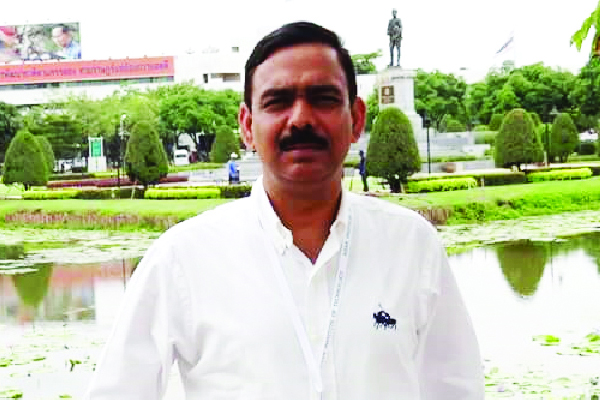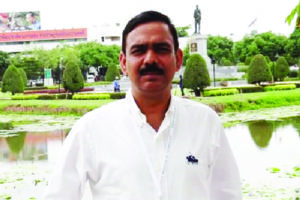

Managing Director
Punjab State Power Corporation Limited (PSPCL)
PSPCL has launched smart meters to put a check on power thefts in the rural regions of Punjab. Together with these private firms, PSPCL has invested Rs 20 crores for the installation of these Residential Fire Meters, says A Venu Prasad, Managing Director, Punjab State Power Corporation Limited (PSPCL), in conversation with Poulami Chakraborty of Elets News Network (ENN).
How has been the journey of power sector in Punjab?
Punjab is a power surplus State with a power generation capacity of 13,900 mega watt units on a yearly basis. During the current year, we have recorded a peak demand of 11,900 mega watts till 10th July, which is the highest till date. It is 2,682 lakhs units per day, which is the highest recorded demand unit in the recent past. Five years ago, we were facing deficit, however with the help of Independent Power Producers (IPP) or Non- Utility Generator, we are now in a better position with surplus energy supplies. In terms of growth, there is a steep growth in the demand in the recent times, which is about 7.5 to 10 per cent, year-on-year basis. In 2015, the Central Government agreed to release Rs 800 crores for Punjab under Deen Dayal Upadhyay Gram Jyoti Yojana (DDUGJY) with a view to upgrade the rural power sector. With the advent of DDUGJY, it enabled us to ensure round the clock supply of electricity in the rural areas, besides ensuring metering at all levels, strengthening transmission and distribution and several others.

“We are now planning to reduce our power rates to Rs 5 per unit as a result of which we would be able to compete with the private players.”
What key projects PSPCL is planning to launch soon?

 PSPCL has measured an overall growth of 10 per cent consumption of power supply in Punjab, which also demarcates the growth of demand as well as supplies, resulting in seamless connection of power in the region. In terms of power generation, Punjab has three plants in Bhatinda, Ropar and Lehra Mohabbat, of which we are planning to shut down the Bhatinda plant, which is about 25 years old. With more and more independent generators in the market, we are now trying to have more and more PPS.
PSPCL has measured an overall growth of 10 per cent consumption of power supply in Punjab, which also demarcates the growth of demand as well as supplies, resulting in seamless connection of power in the region. In terms of power generation, Punjab has three plants in Bhatinda, Ropar and Lehra Mohabbat, of which we are planning to shut down the Bhatinda plant, which is about 25 years old. With more and more independent generators in the market, we are now trying to have more and more PPS.
Though, as of now, we don’t have any plan to have any independent thermal plants to cater the growing demand. However, in the coming two to three years, we are likely to have a critical unit thermal plant at Ropar of 800 mega watt capacity. Also, PSPCL has launched smart meters in association with a power firm, to put a check on power thefts in the rural regions of Punjab. PSPCL, together with these private firms, have made an investment of Rs 20 crores for the installation of these Residential Fire Meters.
Do you think there is a huge competition in the power sector due to the advent of private players?
As such there are no major challenges due to private players. Our main aim is to assure affordable round-the clock power supplies to commercial, domestic and industrial consumers. As a symbiosis, it should be ideally a mixture of thermal, solar and hydrapower to keep a balance in the growth at 10 per cent per annum.
How do you compare the growth of PSPCL vis-a-vis the growth of the infrastructure in the country?
We are ready to ensure growth and updation in our system to develop a digital culture as the nation is embracing it in a big way. Recently, we have tied up with Paytm to provide online bill payments facilities for the consumers of the State. PSPCL has already introduced e-Payment facilities on its website through banking service providers. There is a surge in online bill payments owing to its easy interface for end consumers.
Secondly Punjab today, is a power surplus State with significant dependency on private players as well as notable contribution from our own State thermal power plants. For any industry in a region to grow and develop significantly, it is important to have strong power supply, which we already have. We are now planning to reduce our power rates to Rs 5 per unit as a result of which we would be able to compete with the private players.
“In the next three months, we are planning to introduce RTGS or NEFT collection of bills for customers, for bills amounting to Rs 1 lakh or more.”
How is PSPCL planning the growth of power sector in Punjab?
The key and foremost strength of PSPCL is that we have surplus power generation and strong transmission. However, in distribution level, we are having certain problems regarding feeder. We are unable to provide good quality, uninterrupted power supply to the end consumers. Hence, we focus to provide quality and seamless power supplies to our consumers as a priority. We are planning to introduce smart meters to ensure accurate meter reading and billing to avoid power theft and other related adversities.
This also takes us a step ahead on e-governance, given our staff does not need to visit any consumer to ensure accuracy in power reading. At the same time, our consumers also need not visit our office to pay their bills, owing to our online bill payment system. In the next three months, we are planning to introduce RTGS or NEFT collection of bills for customers, for bills amounting to Rs 1 lakh or more. We have officially partnered with State Bank of India for our payment collections.
As a matter of fact, PSPCL is inclined to adopt any change that empowers our society with clarity, seamless connectivity and better quality supplies. With this aim, we wish to see enhanced growth in the power sector of Punjab.
Be a part of Elets Collaborative Initiatives. Join Us for Upcoming Events and explore business opportunities. Like us on Facebook , connect with us on LinkedIn and follow us on Twitter, Instagram.











